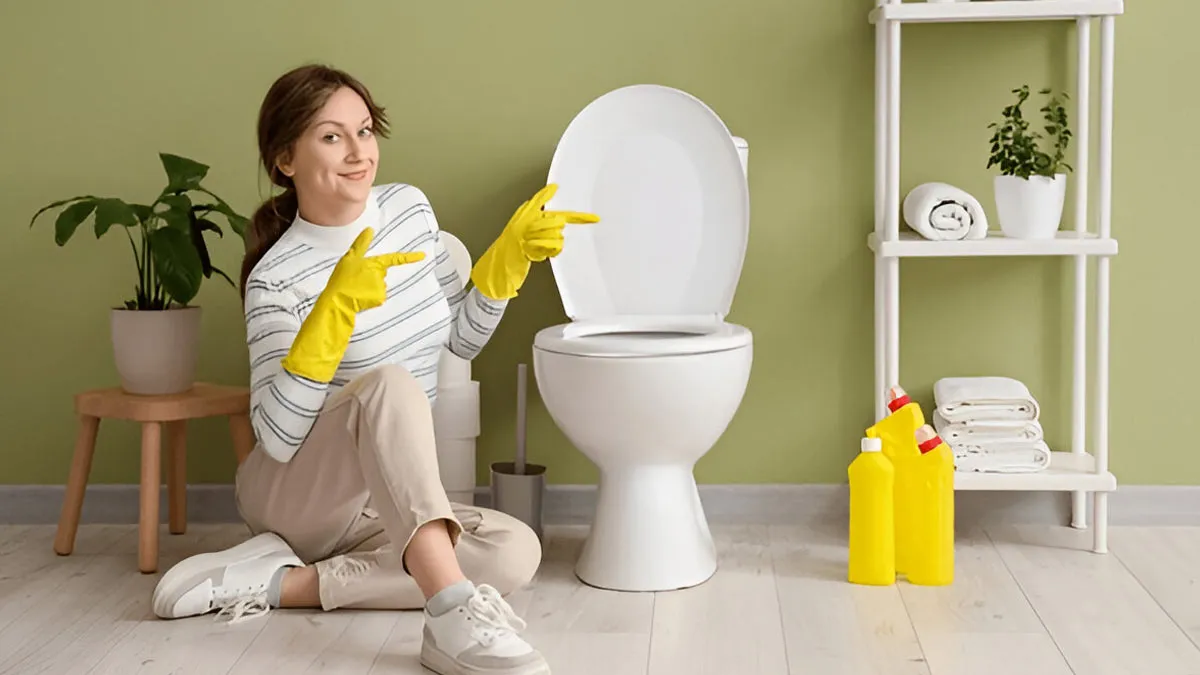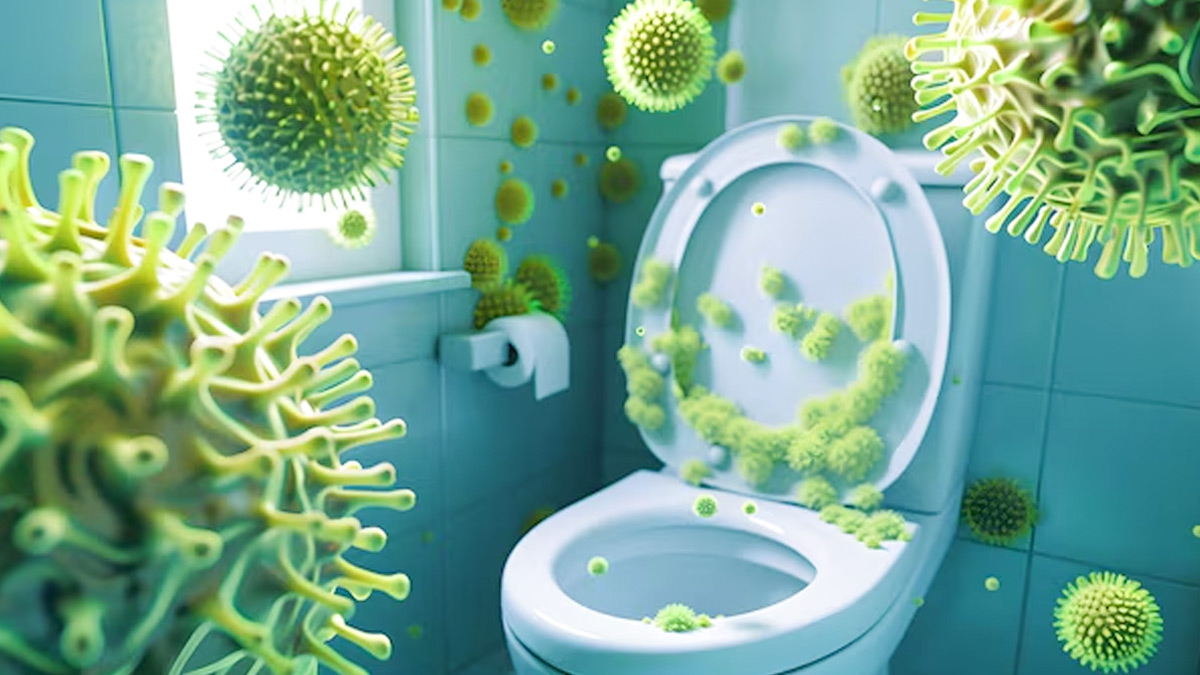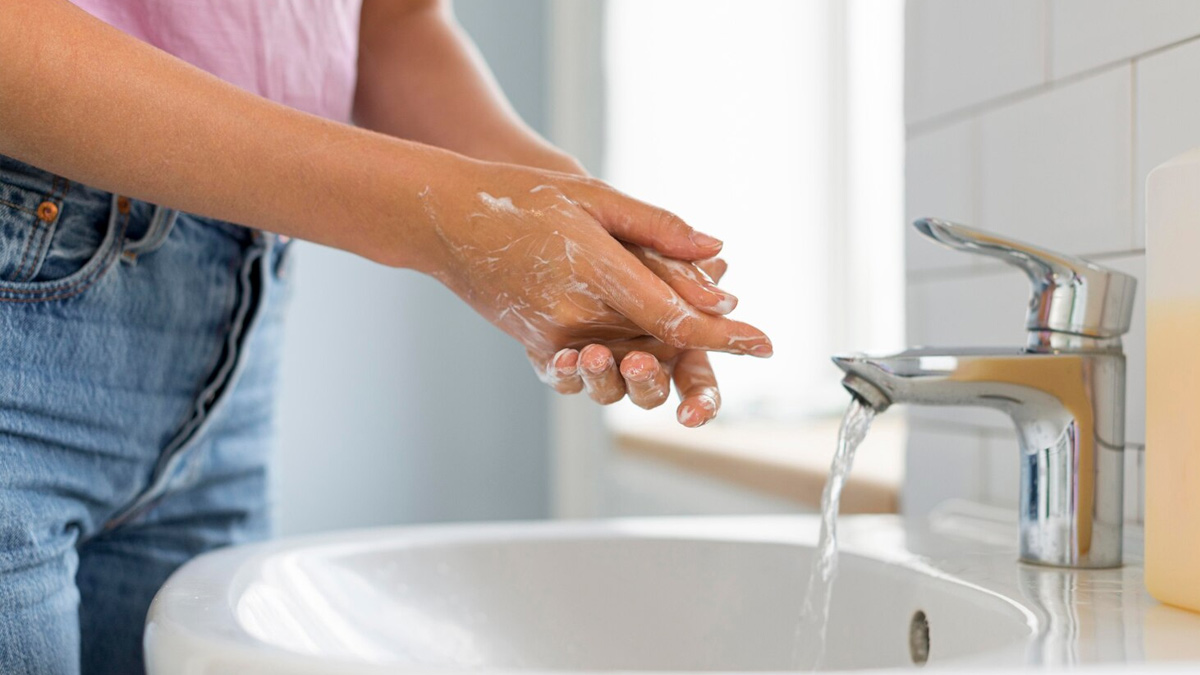
When we think of health, we picture medicines, vaccinations, and visits to the doctor. But what if the most potent defense against infection is not in a pharmacy, but sitting in your bathroom? A clean toilet is not glamorous, but it's an unsung protector of your health, keeping disease at bay long before it hits your body. In fact, according to experts, good toilet hygiene can prevent more infections than many medicines ever could.
Table of Content:-
We spoke to Dr Bandana Sodhi, Director( Obstetrics and Gynaecology ), Fortis La Femme, New Delhi, and an associated doctor with Sirona Hygiene, who explained why keeping your toilet clean is more than just about appearances.
How Clean Toilets Prevent More Infections Than Most Medicines
Transmission of Bacteria & Virus

Every flush unleashes a ‘toilet plume,’ a microscopic cloud of bacteria and viruses that can linger in the air and land on nearby surfaces: the toilet seat, the flush handle, and the doorknob. "A clean, regularly disinfected toilet is our first line of defence as it neutralises these pathogens at their source, preventing them from ever taking flight and infecting people. Without this simple cleaning, these tiny troublemakers settle and can be picked up on our hands and transferred to our mouth, nose, or eyes," explained Dr Sodhi.
The Real Cost of Neglect: Infections and Illness
The consequences of this microscopic transfer are significant. Poor toilet habits are a leading cause of a range of everyday infections, including:
- Gastrointestinal Illnesses: Pathogens like E. coli and Salmonella cause food poisoning and gastroenteritis.
- Urinary Tract Infections (UTIs): Bacteria can cross with ease from the anal area to the urethra in women, causing sore UTIs.
- Respiratory Viruses: Cold and flu viruses can survive on high-touch surfaces and can be transferred to hands.
- Parasitic infections: Giardia and Entamoeba histolytica are spread through contaminated surfaces or water.
- Hepatitis A and E: The viruses are transmitted through the faecal-oral route and are usually associated with unsanitary conditions.
- Skin and fungal infections: Exposure to dirty toilet seats for extended periods may lead to rashes, fungal infections, and other irritations of the skin.
These are not abstract risks; they are real, debilitating illnesses that can be prevented.
Also Read: Does Using Your Phone in the Washroom Causes Piles? Know It From An Expert
Prevention Over Cure
When we fall ill, we often turn to medicine, such as antibiotics, which are a reaction to an illness that has already taken hold. They cure the symptoms and battle the infection, but they don't necessarily prevent the initial exposure.
“Also, the abuse of these drugs causes antibiotic resistance, and it becomes much more difficult to treat simple infections in the future. A clean toilet, however, is a preventative measure. It prevents the infection from taking hold before it even has the chance,” added Dr Sodhi.
Preventative Tips You Should Follow

- Clean your hands with soap and water for a minimum of 20 seconds after each use of the toilet.
- Flush then close the toilet lid to trap the unseen cloud of germs.
- Wipe from front to back to avoid spreading bacteria and risking UTIs.
Also Read: Toilet Flush Germs on Your Toothbrush? Here’s How to Keep It Safe and Hygienic
Modern Tools for a Healthier Bathroom
In addition to good practices, contemporary products have never made it simpler to keep your bathroom hygienic.
- Disinfectant Sprays and Wipes: Convenient and speedy for sanitising high-touch areas.
- Touch-Free Technology: Faucets and soap dispensers that eliminate a major cause of germ transfer in public spaces.
- Automatic Toilet Cleaners: Assist in keeping the bowl clean between long, deep cleanings.
- High-Tech Toilet Brush Designs: Constructed with more sanitary materials, such as silicone, that are simpler to clean.
- Smart Toilets: Fitted with self-cleaning capabilities, special glazes that won't stain, and hands-free flushing.
Bottomline
Improved sanitation is able to lower diarrheal disease spread by 36%, states the World Health Organization (WHO).
Dr Sodhi concluded, "A toilet is a key to public health infrastructure. Spending money on its cleanliness, whether at home or in a public facility, is one of the most potent things we can do to guard our own and others' health. By making toilet hygiene a top priority in homes, schools, the workplace, and public areas, we can prevent many infections and save millions from unnecessary illness."
[Disclaimer: This article contains information provided by an expert and is for informational purposes only. Hence, we advise you to consult your professional if you are dealing with any health issue to avoid complications.]
Also watch this video
How we keep this article up to date:
We work with experts and keep a close eye on the latest in health and wellness. Whenever there is a new research or helpful information, we update our articles with accurate and useful advice.
Current Version